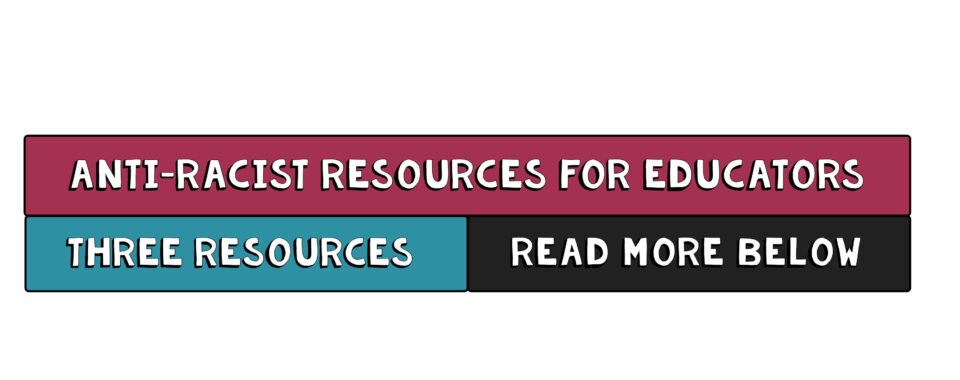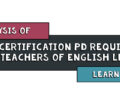
Even as language educators who often focus on teaching words, we have struggled to find those very words to name our reactions to the latest instances of police brutality and white supremacy that have taken place in the US. We stand in solidarity with the Black community and all victims of racism and state violence. We say the names of George Floyd, Breonna Taylor, Ahmaud Arbery, and Tony McDade, among many others.
We also remain committed to our work of empowering English learners and their educators while acknowledging the ways in which our educational system perpetuates structural racism and inequality, which became even more apparent as schools closed this spring. We believe that Non-Black educators must do the internal work of examining their own biases and strive to be not merely not racist, but actively anti-racist. We are committed to our personal, ongoing practices of anti-racism and allyship and will continue to support all educators in engaging in similar work.
We would like to share three resources – one for internal reflection and education on anti-racism, one for engaging in difficult conversations with students around race, and one for addressing police violence in the United States.
![]() –
–

This Twitter thread from anti-racist educator Victoria Alexander (@victoriaalxndr) has provided an anti-racist reading list broken up into a starter kit, intermediate kit, specific topics including education, and biographies and personal narratives.
➤ Explore the Anti-Racist Reading List
I’ve been getting a lot of questions from my non-Black friends about how to be a better ally to Black people. I suggest unlearning and relearning through literature as just one good jumping off point, and have broken up my anti-racist reading list into sections: pic.twitter.com/gj5uko69OY
— Victoria Alexander (@victoriaalxndr) May 30, 2020
![]() –
–

This webinar from Embrace Race is a conversation with the authors of Something Happened in Our Town: A Child’s Story About Racial Injustice. The authors discuss how parents and caregivers can begin conversations about racial injustice and child empowerment. The book provides resources for caregivers and educators including child-friendly definitions, discussion guides, and sample dialogues.
–
–
–
–
–
–
–
![]() –
–

 This toolkit, an initiative of the Policing Campaign at The Leadership Conference on Civil and Human Rights, states that everyone has the power, both individually and collectively, to make change through grassroots organizing, policy advocacy, and civic engagement. The report details key issues of public safety and includes key challenges, how to advocate for change, talking points, and overcoming opposition for each issue. The toolkit also outlines seven steps for making change in your community, including sample scripts and letter templates. We hope you’ll join us in committing to doing anti-racism work—day in and day out—to confront and dismantle systems of racism and white supremacy and foster a more just and equitable educational system for all students.
This toolkit, an initiative of the Policing Campaign at The Leadership Conference on Civil and Human Rights, states that everyone has the power, both individually and collectively, to make change through grassroots organizing, policy advocacy, and civic engagement. The report details key issues of public safety and includes key challenges, how to advocate for change, talking points, and overcoming opposition for each issue. The toolkit also outlines seven steps for making change in your community, including sample scripts and letter templates. We hope you’ll join us in committing to doing anti-racism work—day in and day out—to confront and dismantle systems of racism and white supremacy and foster a more just and equitable educational system for all students.
➤ Download the Advocacy Toolkit
–![]()
We struggled to choose only three resources so as not to overwhelm our community, which is why we have created a more extensive Padlet for you. We recognize this Padlet is by no means exhaustive and encourage you and your colleagues to share additional anti-racist resources that you have found to be useful.
➤ Click here to access the Padlet immediately.




